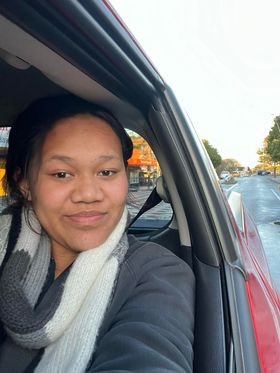Getting ahead by understanding money management fundamentals
Lauryn Spreckley is the eldest of five siblings. Like many young people, she’s active and busy, studying law and business at AUT, working part-time as a lifeguard, playing sports and volunteering. But unlike many young people, Lauryn has a strong financial literacy foundation from her Primary School lessons with Banqer.
This knowledge sets her apart from her peers, as Lauryn has proven to make better financial decisions around saving, spending and retirement.
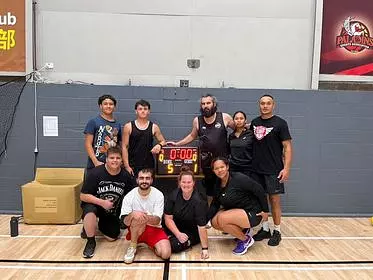
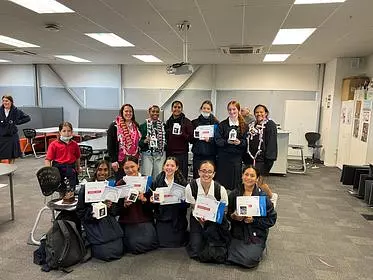
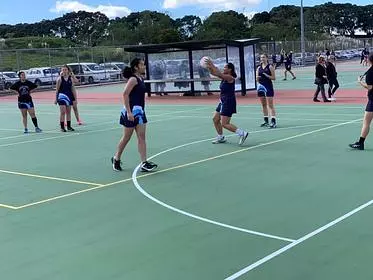
What financial education looked like in primary school
But before all this, Lauryn was a student at Greenmeadows Intermediate, learning to understand the fundamentals of money management through Banqer.
While at Greenmeadows Intermediate, Lauryn and her classmates learnt about the difference between needs and wants, and how to budget for different expenses. In Banqer Primary, all students received a weekly fixed income and then used this to pay for fixed expenses set by their teacher, such as desk rental or electricity costs. They also learnt about KiwiSaver, and preparing for retirement.
To earn more Banqer Dollars, students could apply for classroom jobs, such as cleaning the board or rubbish duty. They could use their hard-earned Banqer dollars to buy reward items like bean bag use in the reading corner, and when Lauryn’s teacher put on a movie day towards the end of the term, the class could also pay for popcorn, lollies or bean bag rental to enjoy with the movie.
Lauryn’s mum, who worked in banking during Lauryn’s intermediate years, was amazed by the existence of a program like Banqer. She noticed a tangible impact on her daughter, despite Lauryn only utilizing Banqer for a brief period of one or two years, and believes Lauryn’s financial capability is worlds apart from rangatahi who didn’t have access to Banqer at school. Lauryn noted a distinct contrast between her own savings ability and that of her younger sisters, who unfortunately did not have access to Banqer in school.
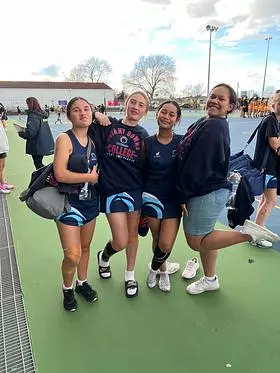
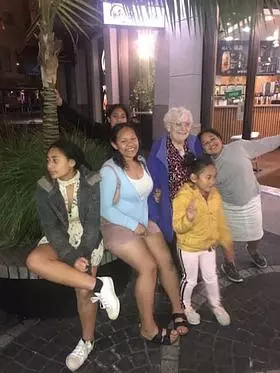
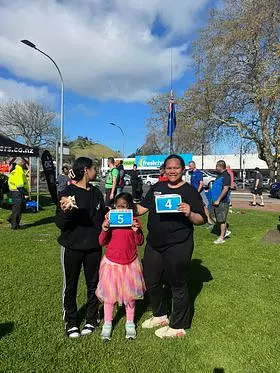
How financial education impacts young adulthood
Banqer helped Lauryn understand the fundamentals of finance at a young but crucial age, She feels more comfortable with complex concepts such as lending and building up a good credit score, which she says would not have crossed her mind without the lessons she learned from Banqer. She talked about money with her parents more often, which reinforced her Banqer lessons, and she was able to take their words more seriously. “Growing up in a large household, money was always tight, so I didn’t get pocket money to practice with. A lot of people in my circle are in a similar situation, so when we start getting wages, sometimes we tend to go all out buying things we couldn’t have growing up.”
Lauryn started doing a paper run shortly after starting Banqer. Thanks to her lessons, Lauryn learned the value of saving rather than spending. She also learned that not all jobs pay equally and that getting a good job with a good income is not necessarily easy.
Lauryn says she notices differences between her money practices and that of her friends or work colleagues who didn’t use Banqer in school, with many of them spending their money as soon as it comes in. “I know some people who didn’t get to use Banqer who aren’t in a good position compared to those of us who did.”
How Banqer created confidence in money management and financial planning
Banqer made Lauryn more aware of the value of thoughtfully dividing her money and gave her confidence with money and planning for her financial goals. While she does allocate a percentage of her money to fun, she divides most of her pay into short, medium and long-term savings.
She notes that some of her friends either don’t have KiwiSaver at all or only just opened a KiwiSaver recently. Her parents set her up with KiwiSaver as a kid, and now that she is 18, she plans to contribute the maximum amount to her KiwiSaver, which she says she wouldn’t have known without Banqer.
The advice I give all my friends who don’t know much about money is to definitely open and regularly contribute to a KiwiSaver account. I explain how not only does your employer make contributions to your KiwiSaver, but the government will also contribute a little if you put in a certain amount every year. Every little bit helps.
Empowering Financial Discussions and Sharing Knowledge
Banqer has empowered Lauryn to discuss money confidently with her friends, and some were surprised by what they didn't know. Lauryn explained concepts like automatic payments for easy saving, understanding credit scores, and the positive impact of savings and lending. Inspired by this, one friend opened a KiwiSaver account and started building their credit score.
Lauryn recognizes the taboo around financial discussions, especially in Pasifika communities. Through her volunteer work in Otara, she shares her Banqer knowledge with young people who lack financial goals and struggle with money management. In Pasifika communities, intergenerational poverty is common, and many youths bear financial responsibilities from a young age. There is a term within the community, “You know what you know,” and without proper financial education, they are more likely to face hardship and repeat these cycles. Lauryn strongly believes that incorporating financial literacy in schools is the solution to address these issues and create a better society in the future.
Be proactive. Set up regular, consistent payments into savings. And normalise talking about money. Conversations about money shouldn’t be taboo.
Lauryn's Vision for Financial Literacy in Schools
Lauryn encourages any educators considering Banqer to give it a go and to be creative with it. Create experiences that are relevant, and that students will find memorable - like she did.
She would love to see Banqer in more schools, especially in lower decile schools and among Pasifika communities, and she believes if everyone had the opportunity to learn about money using a tool like Banqer, it would create a substantial and positive difference in how people manage their money.
